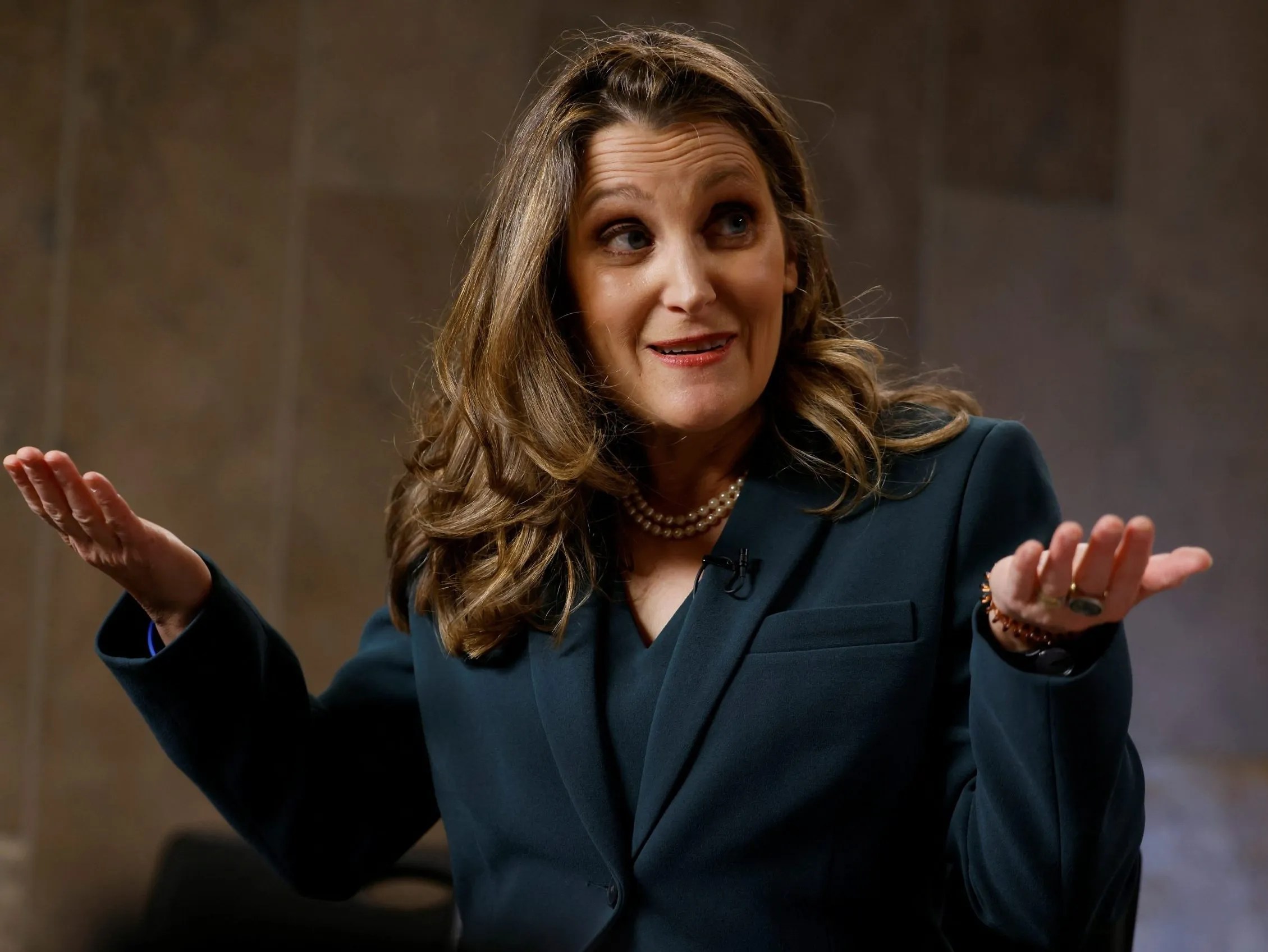

Chrystia Freeland Annual Salary: A Comprehensive Overview
Chrystia Freeland's annual salary has become a topic of interest among Canadians and political observers alike. As the Deputy Prime Minister and Minister of Finance of Canada, her financial compensation reflects her significant responsibilities in the government. In this article, we will delve into the specifics of Chrystia Freeland's salary, her career trajectory, and the broader implications of her financial standing within the Canadian political landscape.
The role of a Deputy Prime Minister is crucial, particularly in times of economic uncertainty, which Canada has faced in recent years. Chrystia Freeland's position not only demands a high level of expertise but also comes with considerable scrutiny regarding her financial compensation. Understanding her annual salary can provide insight into how government salaries are structured and the values assigned to public service in Canada.
In the following sections, we will explore detailed information about Chrystia Freeland's salary, her career accomplishments, and how her financial standing compares to other political figures. By the end of this article, readers will gain a clearer picture of what her annual salary entails and its significance in the realm of Canadian politics.
Table of Contents
- Chrystia Freeland Biography
- Chrystia Freeland Annual Salary
- Comparison with Other Political Figures
- Career Highlights
- Impact on Canadian Politics
- Public Perception of Freeland
- Future Outlook
- Conclusion
Chrystia Freeland Biography
Chrystia Freeland, born on August 2, 1968, in Peace River, Alberta, is a prominent Canadian politician and journalist. She has made significant contributions to the Canadian government, particularly in her roles related to finance and international trade.
| Personal Information | Details |
|---|---|
| Name | Chrystia Freeland |
| Date of Birth | August 2, 1968 |
| Place of Birth | Peace River, Alberta, Canada |
| Position | Deputy Prime Minister and Minister of Finance |
| Political Party | Liberal Party of Canada |
Chrystia Freeland Annual Salary
As of 2023, Chrystia Freeland's annual salary is reported to be approximately CAD 270,000. This figure includes her base salary as a Member of Parliament as well as additional compensation for her role as Deputy Prime Minister and Minister of Finance.
The salary of a Deputy Prime Minister is typically higher than that of regular MPs due to the increased responsibilities and the complexity of the tasks involved. In addition to her salary, Freeland also benefits from various allowances and benefits associated with her position, such as travel allowances and pension contributions.
Salary Breakdown
- Base Salary as MP: CAD 185,000
- Deputy Prime Minister Salary: CAD 40,000
- Minister of Finance Salary: CAD 45,000
Comparison with Other Political Figures
To contextualize Chrystia Freeland's salary, it is essential to compare it with other notable figures in Canadian politics. For instance, the Prime Minister of Canada, Justin Trudeau, has an annual salary of approximately CAD 350,000. This demonstrates the typical salary hierarchy within the Canadian government.
Salary Comparisons
- Prime Minister: CAD 350,000
- Cabinet Ministers: CAD 250,000
- Members of Parliament: CAD 185,000
Career Highlights
Chrystia Freeland's career is marked by several significant milestones, including her tenure as a journalist and author. Before entering politics, she worked for notable publications such as The Globe and Mail and Financial Times, where she honed her expertise in economic issues.
Her political career began in 2013 when she was elected as the Member of Parliament for Toronto Centre. Since then, she has held various prominent positions, including Minister of International Trade and Minister of Foreign Affairs, showcasing her versatility and competence in handling complex governmental affairs.
Impact on Canadian Politics
As Deputy Prime Minister and Minister of Finance, Chrystia Freeland has played a crucial role in shaping Canada’s economic policies, especially in response to the COVID-19 pandemic. Her decisions have had far-reaching effects on the Canadian economy, influencing everything from employment rates to international trade agreements.
Public Perception of Freeland
Public opinion on Chrystia Freeland is varied. Many Canadians respect her for her intellect, work ethic, and ability to navigate challenging economic landscapes. However, she also faces criticism from some quarters regarding government spending and economic management.
Future Outlook
Looking ahead, Chrystia Freeland's role will continue to be vital as Canada navigates post-pandemic recovery. Her decisions will not only affect the economy but also the political landscape as she leads initiatives aimed at fostering growth and stability.
Conclusion
In summary, Chrystia Freeland's annual salary reflects her significant responsibilities as a key political figure in Canada. Her career trajectory showcases her expertise and authority in financial matters, contributing to her trustworthiness among Canadians. As the country moves forward, her role will be pivotal in shaping economic policies and addressing the challenges that lie ahead.
We encourage readers to share their thoughts on Chrystia Freeland’s salary and her impact on Canadian politics in the comments section below. Also, feel free to explore more articles on our site for deeper insights into current political affairs.
Thank you for reading, and we look forward to welcoming you back for more informative content!
Exploring Tyler Hynes' Daughter: Insights Into His Family Life
Exploring The Life And Legacy Of Sarah Lisa Mottola
Ivy Bamford: A Journey Through Her Life And Career


